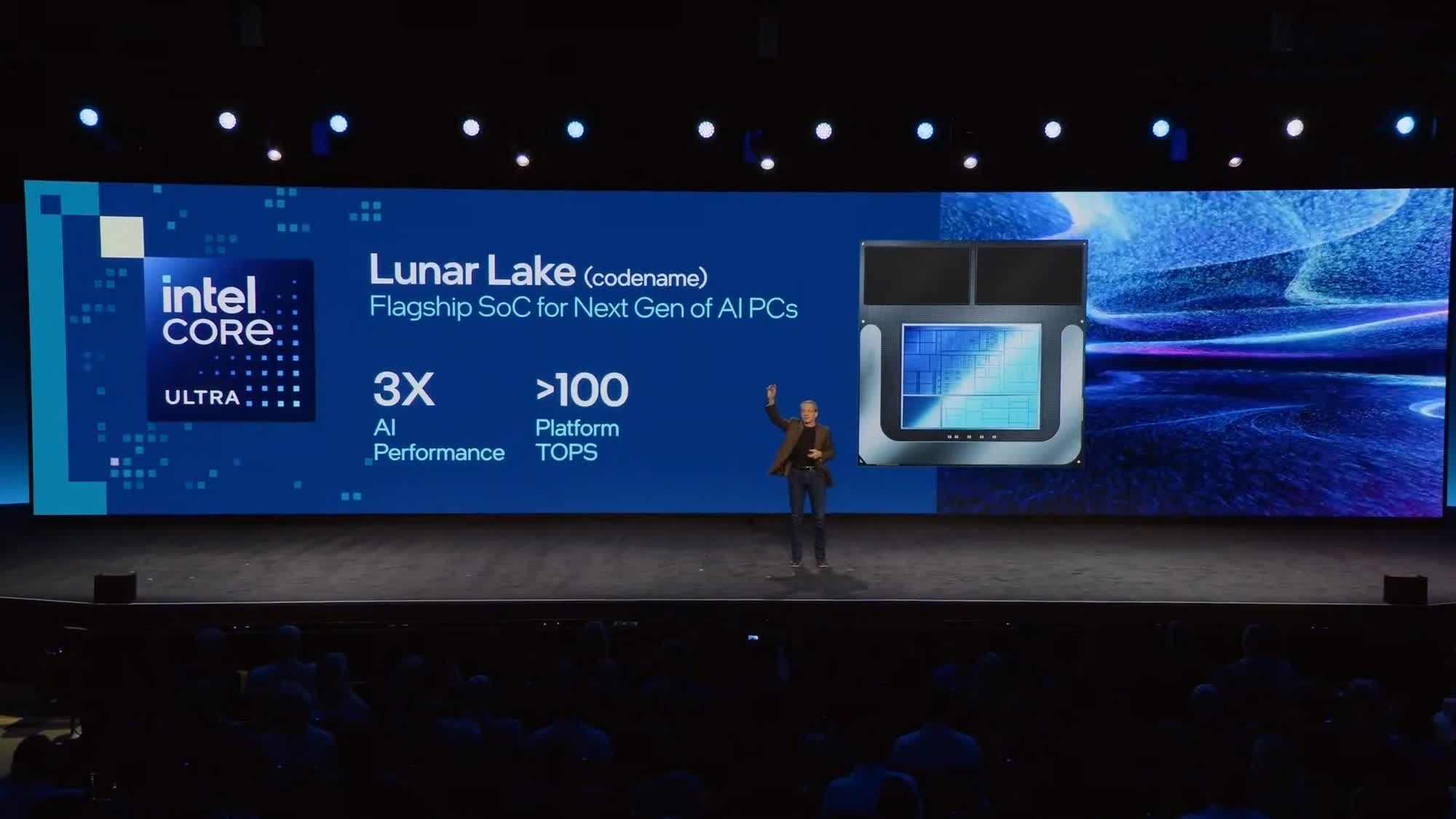In a nutshell: At its Vision 2024 conference in Phoenix, Arizona, this week, Intel CEO Pat Gelsinger claimed that the company's upcoming Lunar Lake processors will deliver 100+ TOPS of performance in AI workloads, including 45 TOPS of NPU throughput. If Gelsinger's claims turn out to be accurate, it would be a massive upgrade over the current-gen Meteor Lake chips that offer up to only 10 TOPS of NPU performance.
Going by Gelsinger's assertions, Lunar Lake should also be better for AI workloads than AMD's latest Hawk Point processors that offer 16 TOPS of NPU throughput. While that seems to be on the lower side compared to Lunar Lake, AMD claims that its upcoming Strix Point platform will bring faster AI processing than its predecessors. In a statement to Tom's Hardware, a company spokesperson said that the Strix Point chips with XDNA 2 architecture would have "up to 3x the generative AI performance of the current generation."
It is worth noting that Microsoft defines AI PCs as devices offering at least 45 TOPS of NPU performance. According to Redmond, an AI PC must have a dedicated neural processing unit (NPU) offering power-efficient on-device AI acceleration and local inference. While the CPU and GPU also have their own AI-specific acceleration capabilities, the TOPS delivered by them do not count towards Microsoft's definition.
Alongside Intel and AMD, Qualcomm is also making a big play for the next-generation connected PC with its upcoming Snapdragon X Elite chips that are expected to power laptops from major PC vendors later this year. According to Qualcomm, these Arm-based chips will offer 75 TOPS of AI performance in total, including 45 TOPS from the NPU alone.
Qualcomm has officially claimed that the Snapdragon X Elite will be faster than the Core Ultra 9 185H and Core Ultra 7 155H Meteor Lake mobile processors, and recent benchmarks seem to back up those claims.
If the next-gen chips from Intel, AMD, and Qualcomm do turn out to be as powerful in AI workloads as the companies claim them to be, devices powered by all of them should qualify for Microsoft's "AI PC" definition. It's not immediately clear how many laptop buyers would want AI capabilities in their laptops, but expect it to be the buzzword for PC vendors in the coming months - whether you want it to or not.
